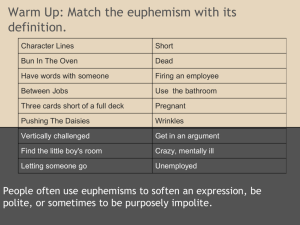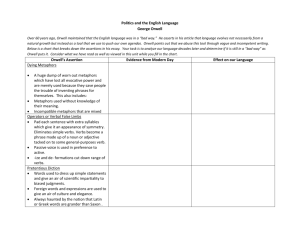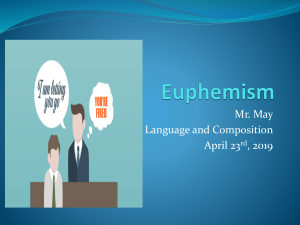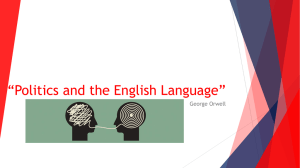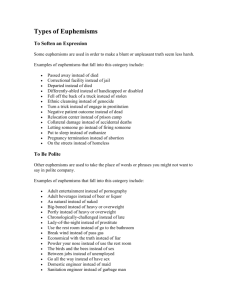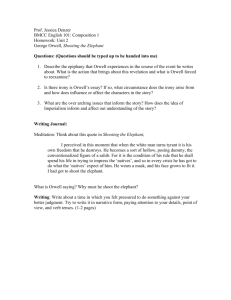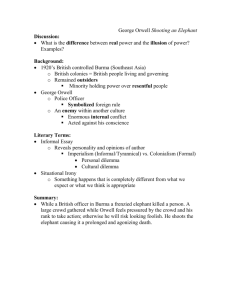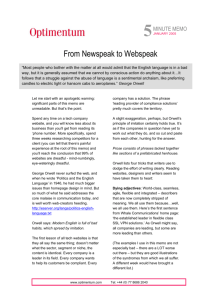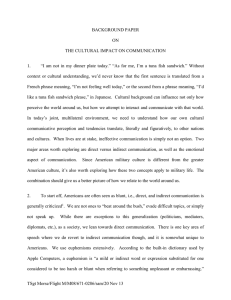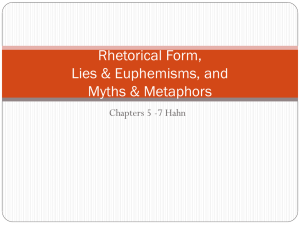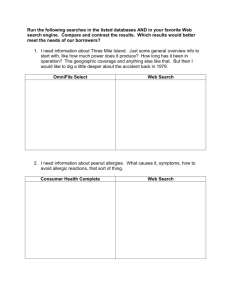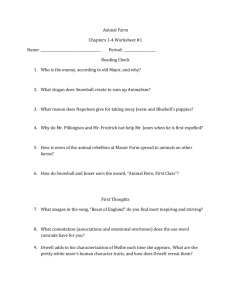Orwell's Language Abuse: Worksheet Analysis
advertisement
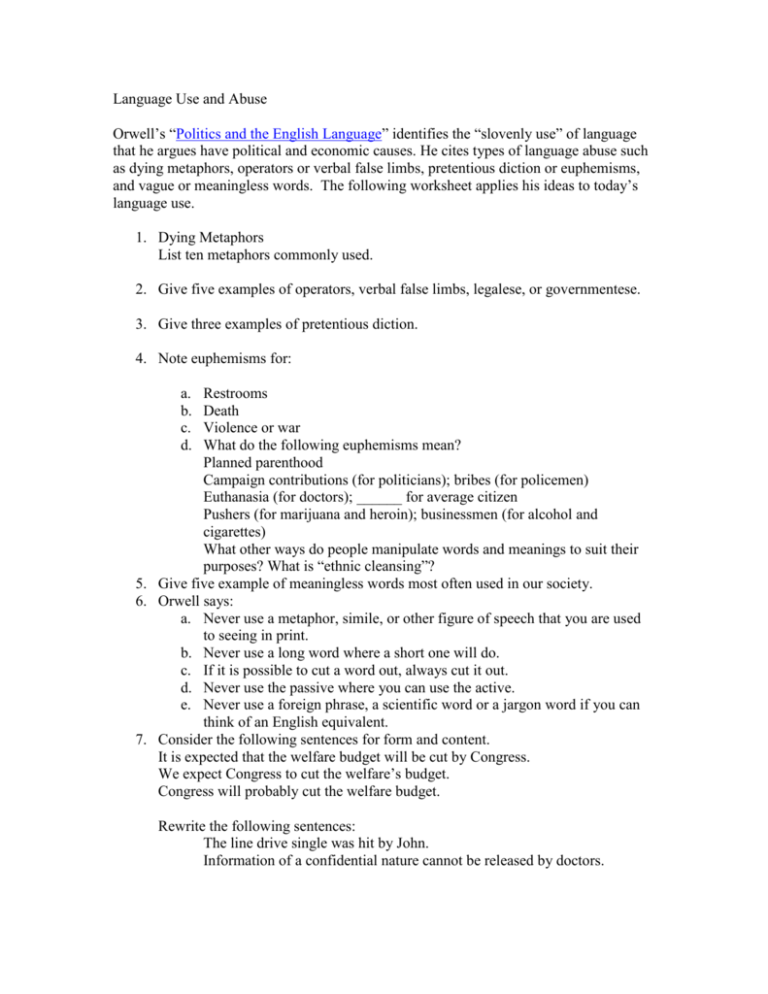
Language Use and Abuse Orwell’s “Politics and the English Language” identifies the “slovenly use” of language that he argues have political and economic causes. He cites types of language abuse such as dying metaphors, operators or verbal false limbs, pretentious diction or euphemisms, and vague or meaningless words. The following worksheet applies his ideas to today’s language use. 1. Dying Metaphors List ten metaphors commonly used. 2. Give five examples of operators, verbal false limbs, legalese, or governmentese. 3. Give three examples of pretentious diction. 4. Note euphemisms for: a. b. c. d. Restrooms Death Violence or war What do the following euphemisms mean? Planned parenthood Campaign contributions (for politicians); bribes (for policemen) Euthanasia (for doctors); ______ for average citizen Pushers (for marijuana and heroin); businessmen (for alcohol and cigarettes) What other ways do people manipulate words and meanings to suit their purposes? What is “ethnic cleansing”? 5. Give five example of meaningless words most often used in our society. 6. Orwell says: a. Never use a metaphor, simile, or other figure of speech that you are used to seeing in print. b. Never use a long word where a short one will do. c. If it is possible to cut a word out, always cut it out. d. Never use the passive where you can use the active. e. Never use a foreign phrase, a scientific word or a jargon word if you can think of an English equivalent. 7. Consider the following sentences for form and content. It is expected that the welfare budget will be cut by Congress. We expect Congress to cut the welfare’s budget. Congress will probably cut the welfare budget. Rewrite the following sentences: The line drive single was hit by John. Information of a confidential nature cannot be released by doctors. Figures showing that the cost of living rose sharply during the past twelve months were released by the administration today. 8. Give five examples of recent American political English you consider, in Orwell’s words, “ugly and inaccurate.” Are the tricks used by today’s writers the same as those used in Orwell’s day? If not, what terms would you invent to describe new tricks? 9. Some believe that the government and the news media are prone to using euphemisms, misplaced technical jargon, stock phrases, and connotatively “loaded” words for propaganda purposes. Explain the following words or the differences: a. Self-styled/ calling themselves b. Terrorists/freedom fighter c. Intransigent/belligerent/stern/forceful world leaders? 10. How do words embody strong value judgments?
